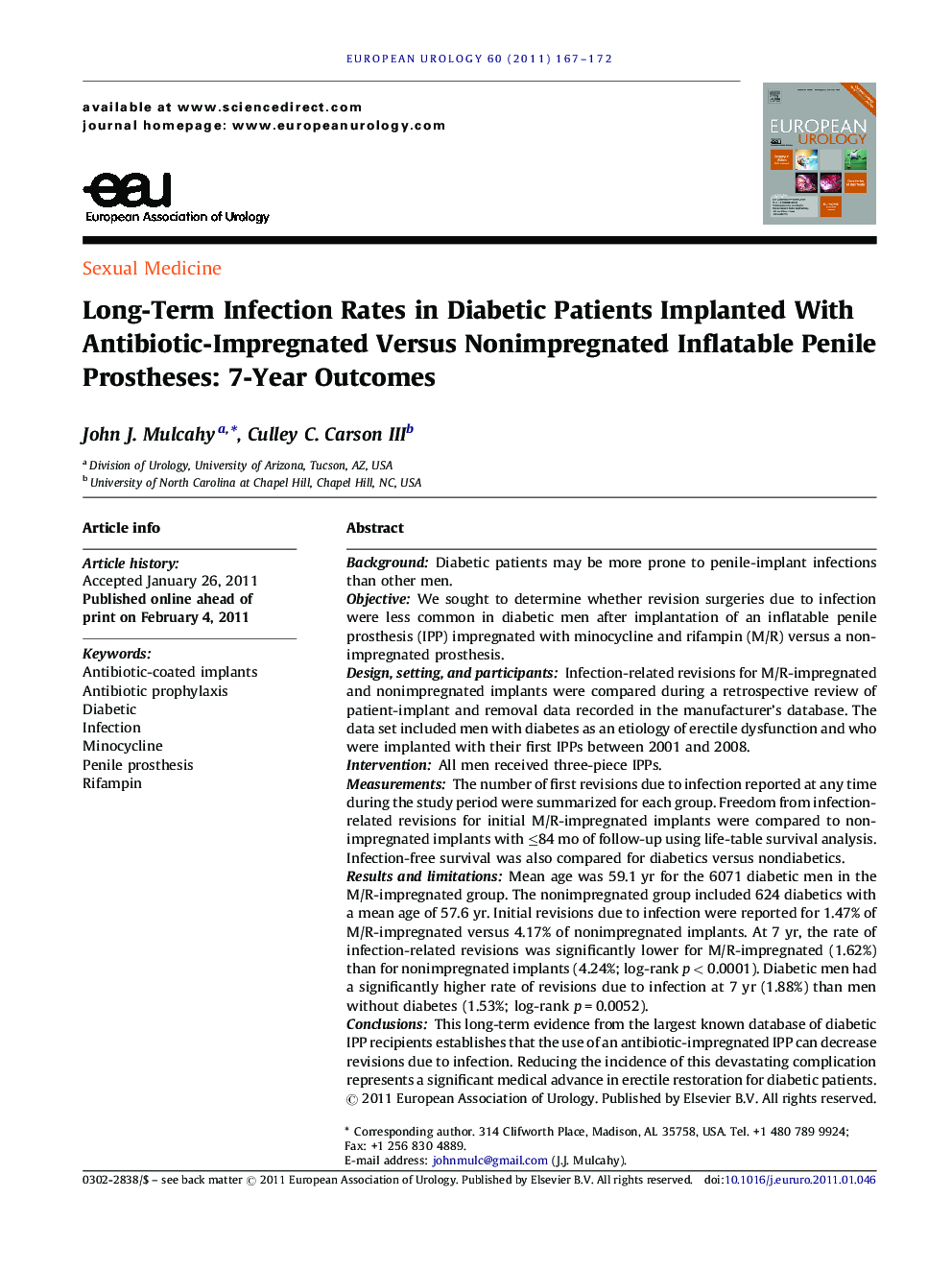| Article ID | Journal | Published Year | Pages | File Type |
|---|---|---|---|---|
| 3924489 | European Urology | 2011 | 6 Pages |
BackgroundDiabetic patients may be more prone to penile-implant infections than other men.ObjectiveWe sought to determine whether revision surgeries due to infection were less common in diabetic men after implantation of an inflatable penile prosthesis (IPP) impregnated with minocycline and rifampin (M/R) versus a nonimpregnated prosthesis.Design, setting, and participantsInfection-related revisions for M/R-impregnated and nonimpregnated implants were compared during a retrospective review of patient-implant and removal data recorded in the manufacturer's database. The data set included men with diabetes as an etiology of erectile dysfunction and who were implanted with their first IPPs between 2001 and 2008.InterventionAll men received three-piece IPPs.MeasurementsThe number of first revisions due to infection reported at any time during the study period were summarized for each group. Freedom from infection-related revisions for initial M/R-impregnated implants were compared to nonimpregnated implants with ≤84 mo of follow-up using life-table survival analysis. Infection-free survival was also compared for diabetics versus nondiabetics.Results and limitationsMean age was 59.1 yr for the 6071 diabetic men in the M/R-impregnated group. The nonimpregnated group included 624 diabetics with a mean age of 57.6 yr. Initial revisions due to infection were reported for 1.47% of M/R-impregnated versus 4.17% of nonimpregnated implants. At 7 yr, the rate of infection-related revisions was significantly lower for M/R-impregnated (1.62%) than for nonimpregnated implants (4.24%; log-rank p < 0.0001). Diabetic men had a significantly higher rate of revisions due to infection at 7 yr (1.88%) than men without diabetes (1.53%; log-rank p = 0.0052).ConclusionsThis long-term evidence from the largest known database of diabetic IPP recipients establishes that the use of an antibiotic-impregnated IPP can decrease revisions due to infection. Reducing the incidence of this devastating complication represents a significant medical advance in erectile restoration for diabetic patients.
